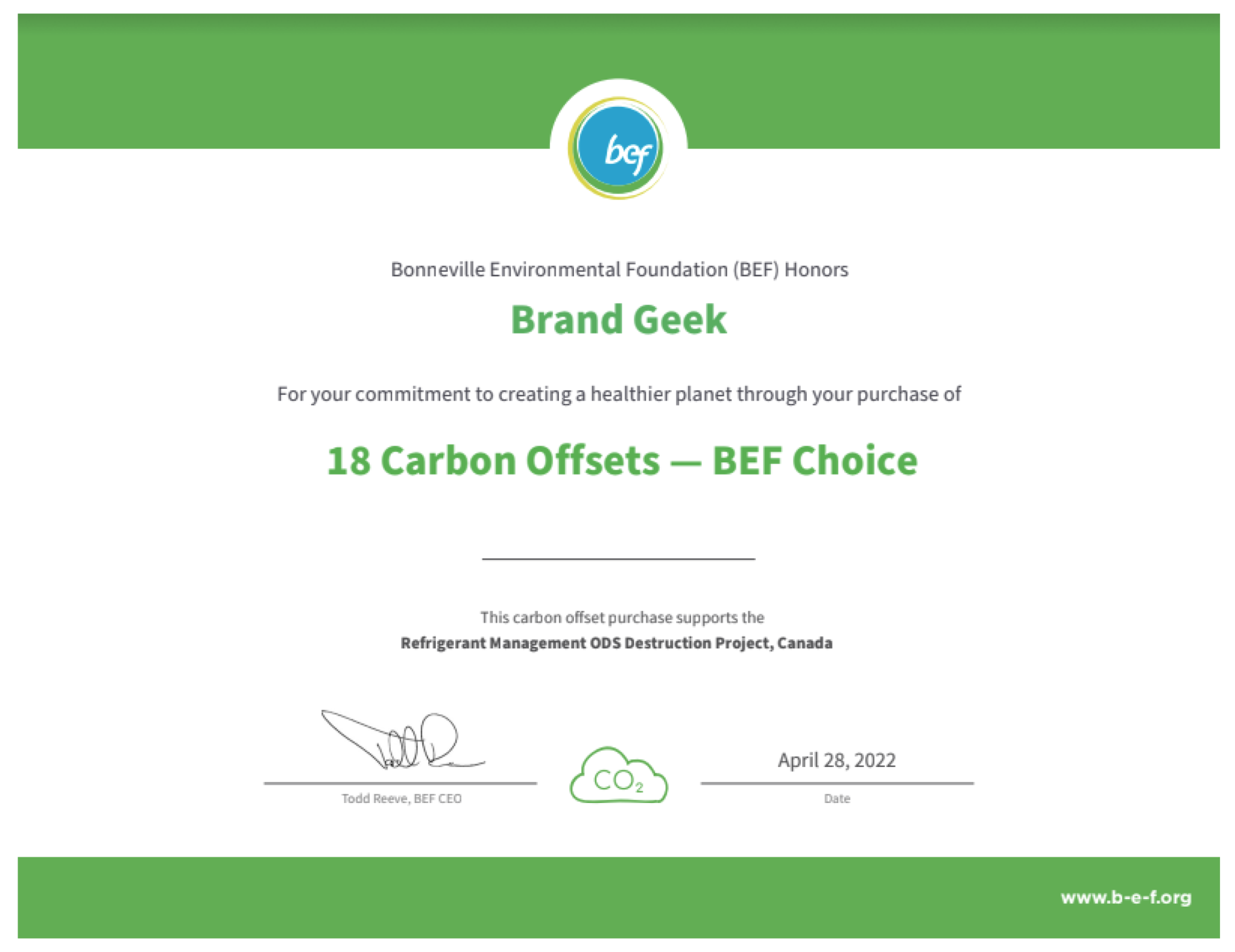Brandgeek proudly supports Mountain Area Preservation and is humbled to be…
Geekview IP Week in Review
Re-branding high fructose corn syrup “corn sugar” puts Corn Refiners in a sticky situation
Most LOHAS consumers and other health conscious individuals do their best to avoid high fructose corn syrup (HFCS) due to the health risks it poses, including obesity. Apparently, there’s lots and lots and lots of us who avoid HFCS, so many that the Corn Refiners Association has given up trying to market corn syrup to us and has instead decided to “re-brand” HCFS as “corn sugar.” That’s false and misleading, according to the Complaint filed by Western Sugar Cooperative and C&H Sugar Co. sued 7 defendants, including HCFS manufactures and the Corn Refiners Association, for false advertising under the Lanham Act, as well as in violation of California Business and Professions Code Section 17200. Some say all sugar’s bad. But changing the generic term for a substance people are knowingly trying to avoid? That’s way worse. According to the docket report, the court heard motions to dismiss the First Amended Complaint on September 13, 2011, though there’s apparently not yet been a ruling.
Meanwhile, according to an article on MSNBC, the FDA apparently has cautioned the corn industry against the term “corn sugar.” Of course, there’s nothing as sweet as a tweet . . .
Twitter takes Twittad to task over “Let Your Ad Meet Tweets.”
Twitter recently sued Twittad, seeking to cancel the federal service mark registration for LET YOUR AD MEET TWEETS for “dissemination of advertising for others via the internet; online advertising services for others, namely, providing advertising space on internet websites; compilation of advertisements on webpages; providing advertising space on the internet.” The complaint states that the registration “unfairly exploits the widespread association by the consuming public of the mark TWEET with Twitter and threatens to block Twitter from its registration and legitimate uses of its own mark.” Twitter has two pending trademark registration applications for TWEET, found here and here. The complaint also alleges that LET YOUR AD MEET TWEETS has been used only as a generic phrase to refer to advertising on Twitter and must be cancelled on that ground. (Yikes, Twitter; did you just say your TWEET mark is generic?!?) Although LET YOUR AD MEET TWEETS is not yet incontestable, Twitter chose to pursue cancellation in federal court rather than before the TTAB, most likely so it could recover damages and attorneys’ fees. Meanwhile, Tweet this: Orphans Anger Authors!
U.S. Universities Unveil Author’s Anger over Orphan Works.
In last week’s Geekview, I described how Cornell, Duke, Emory and Johns Hopkins University’s recently joined the University of Michigan, the University of Wisconsin, and the University of Florida in the Orphan Works Project, which will make the full text of thousands of “orphan works” digitally available to their students, faculty and researchers. Orphan works are works that are presumably protected under copyright, but the copyright owner cannot be found. Well, the Authors Guild thinks that orphans best remain orphans, and has sued HathiTrust and several universities over the Orphan Works Project. Of course, to sue for copyright infringement one must own copyrighted works, so in addition to three Author’s Groups, there are 8 author/plaintiffs each of whom claims that their works were infringed by being digitized under the Orphan Works Project. While I wholeheartedly support getting truly orphaned works into the public domain, there first must be a generally accepted procedure for conducting and documenting reasonable investigation that results in a work being “orphaned.” Otherwise, chaos and lawsuits will ensue. Just like . . .
Warner in hot water with Hotfile.
In February, Disney, Fox, Universal, Columbia Pictures, Warner Bros and others sued Hotfile for “infringement of plaintiffs’ copyrighted motion picture and television properties on a massive scale” on its file sharing website. Last week, Hotfile filed a counterclaim against Warner Bros, claiming that Warner, “knowingly made misrepresentations and it has engaged in DMCA abuse on an unprecedented scale by grossly misusing the powerful anti-piracy software tool that Hotfile specially created at Warner’s request.” The Counterclaim asserts that Warner removed multiple files with the words The Box in them, even when those titles were unrelated to Warner’s movie of the same title. Hotfile accuses Warner of violation of the DMCA, Intentional Interference with Contractual Relations and Negligence. Sounds right to me; but then again, I’m mostly known as a trademark lawyer. Even still, I do know that copyright infringement can land you in federal prison . . .
Crime actor cops to copyright infringement.
According to an article on Wired last week, Wes DeSoto, a Screen Actors Guild member who recently played a small role in CSI: Crime Scene Investigation (ironic, no?) pled guilty to violating the Family Entertainment and Copyright Act of 2005, which criminalizes making a copyrighted work that is “being prepared for commercial distribution” available on-line. Such crime is punishable by up to three years in prison, though sentencing guidelines advise a 10 to 16 month sentence. Although DeSoto only pled guilty to leaking Black Swan, the Feds believe he also leaked The King’s Speech, The Fighter, 127 Hours and Rabbit Hole and they’re seeking to put DeSoto in a hole for three years, though his deal enables him to appeal if he is sentenced to more than 10 months. So what I wanna know is, was it worth it? DeSoto’s acting career is over (autobiographical documentaries excluded), and I imagine it’s pretty hard to get a job most anywhere after federal prison stint for theft. Sometimes you just have to wonder, what were they thinking? And, ditto . . .
SC Johnson wants Nutraceutical Corp. to Buzz Off . . .
SC Johnson sued Nutraceutical Corporation for unauthorized use of its BUG-OFF mark. SC Johnson has used the OFF mark for bug spray and related products for more than 60 years and BUG-OFF since 1998. In March, 2011 Nutraceutical Corp. purchased a company called Sunfeather Natural Soap Company, including its BUG-OFF marks. Prior to its purchase by Nutraceutical Corp., Sunfeather previously filed three appplications to federally register BUG-OFF, which applications were refused registration based on SC Johnson’s BUG-OFF registration, and Sunfeather ultimately abandoned them. SC Johnson alleges counterfeiting, trademark infringement, false designation of origin, and unfair competition and seeks to preliminarily and permanently enjoin Nutraceutical Corp. from using the BUG-OFF marks.
 Be careful what you say and do. Your competitors are watching you. They’ll call you out if they have doubt that what you say is true.
Be careful what you say and do. Your competitors are watching you. They’ll call you out if they have doubt that what you say is true.






[…] past September I wrote about a lawsuit pitting sugar against corn. Initially, two sugar manufacturers sued the Corn […]